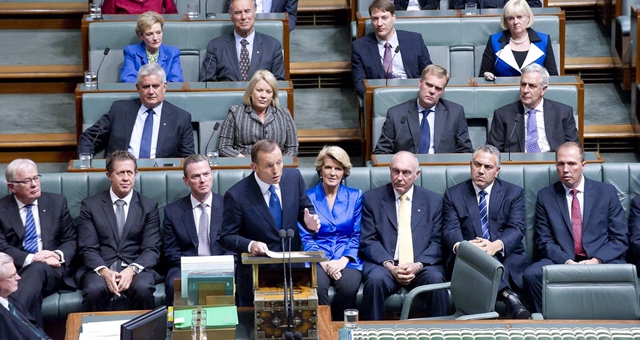Tourism Accommodation Australia (TAA) has welcomed the election of a new Government, saying that its tourism-friendly policies would benefit the industry, which has faced major economic challenges in the past two years.
TAA Managing Director, Rodger Powell, said that it was particularly pleasing that tourism would gain a voice at the Cabinet table, with Deputy Liberal Leader, Julie Bishop, representing the sector.
He said tourism’s value to the Australian economy was also recognised through tourism’s inclusion in the Department for Foreign Affairs, Trade and Tourism.
The pledge to repeal the carbon tax would help businesses reduce costs, while planned changes to visa applications and the freeze on the passenger movement fee would actively stimulate travel to Australia.
“These measures will all benefit the industry in the long-run, but the biggest impediments to performance and job creation within the industry are the rigid work restrictions that have held back the industry for a number of years,” Powell said.
“Industrial regulations and inflexible working conditions are preventing tourism businesses from expanding, and in some cases making it almost impossible to survive, especially given the difficult trading conditions of the past year,” he said.
“What people don’t understand is that this is a common view shared by most employers and employees. Our businesses could employ many more people, particularly part-time, if regulations didn’t make it such a disincentive to employ staff.
“We are not about seeking to reduce wages, we want to see an increase in flexibility of working conditions so that both employers and employees can benefit.
“The key is to match employee and employer needs. Currently, there are major restrictions about mixing roles within a hotel, but that doesn’t reflect how the business operates and the needs of employees and customers. For example, a hotel might need a staff member for the breakfast restaurant shift, but then the restaurant is closed till dinner. However, that staff member can’t then work on front desk or in housekeeping, which means they may only get a four hour shift instead of an all-day job, which doesn’t suit either employee or hotel management.
“Hotels don’t work on a 9 to 5, Monday to Friday basis, and nor do a lot of workers, so there is plenty of scope for reviewing conditions so that it is easier to employ staff on conditions that suit both parties.
“Most hotels these days have closed their restaurants during the day because it is simply too costly to keep them open due to labour conditions, but if there was more flexibility that could be changed. Penalty rates also make it very hard for many businesses to employ staff on weekends and over holiday periods, but this is when part-timers most want to work and when customers need to be serviced. It simply is not satisfactory, and Australia’s competitiveness and professionalism in the hospitality industry is suffering as a result.”
Powell welcomed the new Government’s plans to reduce red tape and said that Government charges, taxes and disincentives were badly affecting the industry, along with lack of infrastructure investment.
“We can’t afford to ignore the future need for a second airport and a comfortable large-cruise ship terminal in Sydney – both of which are Federal matters,” he said.
“The Tourism sector has the potential to be a major economic driver of the Australian economy as the mining boom wanes,” Powell said. “Regional centres have great potential for tourism development and job creation, but operating costs are a fundamental problem for many of the companies.
“Regional and resort areas are very seasonable operations characterised by short periods of peak business and longer periods of fairly slow business, so employment and work conditions need to better reflect the trading cycle of these businesses.”
Powell said that the fall in the dollar had been encouraging for the domestic tourism sector, but it would require considerably more structural change to operating conditions to stimulate new development in the sector.
The accommodation sector is the second largest in the tourism and hospitality sector employing over 96,000 people directly and generating $34 billion in Gross Product and Gross Value.
Powell said that he looked forward to working with the new Government and with Tourism Minister Bob Baldwin in placing a higher emphasis on tourism, with cabinet representation and resources to match the growth potential of the sector.


